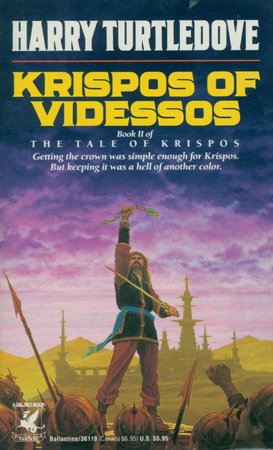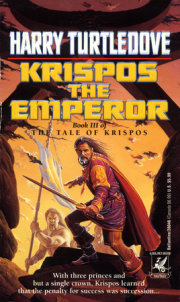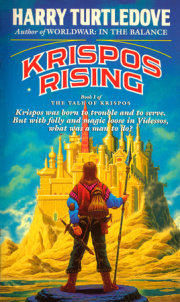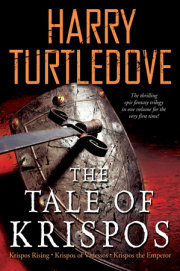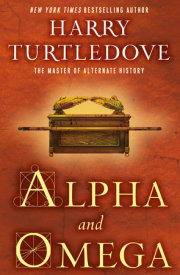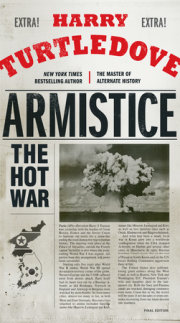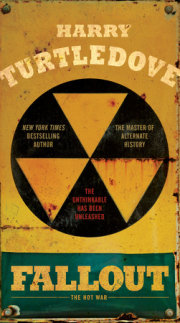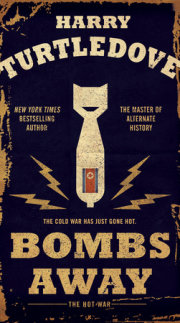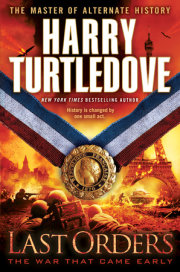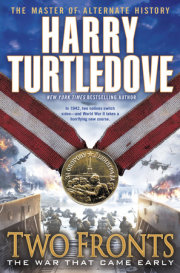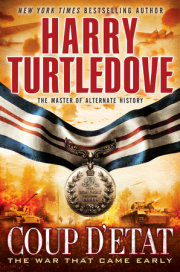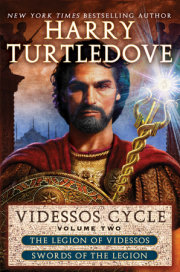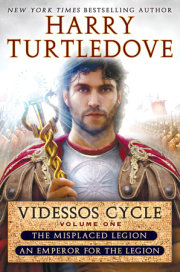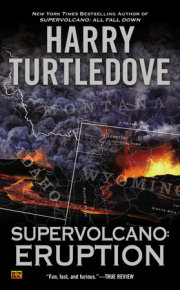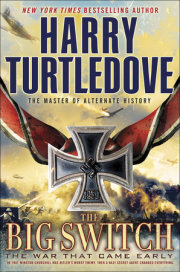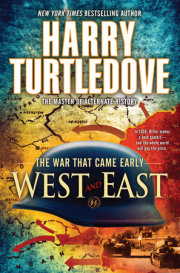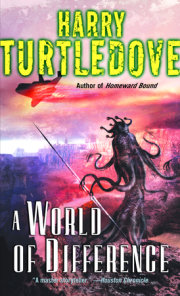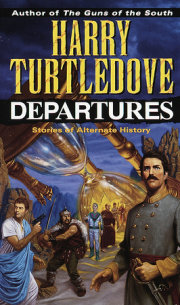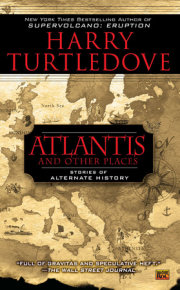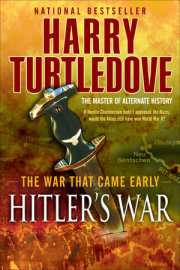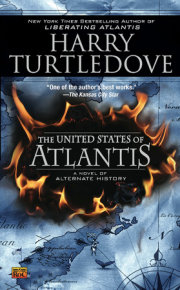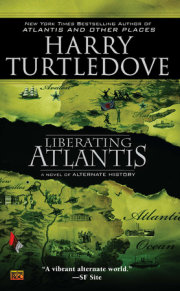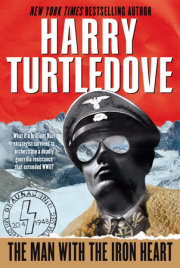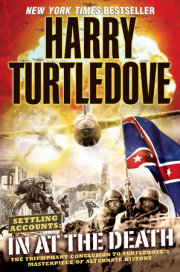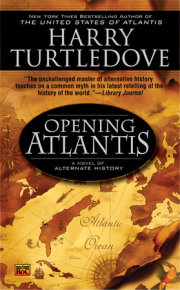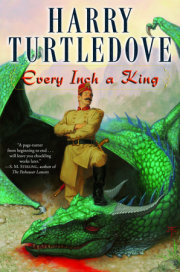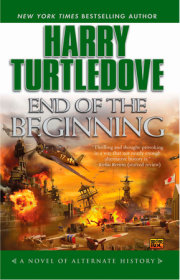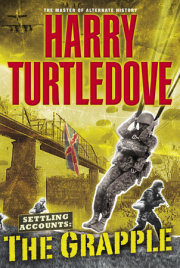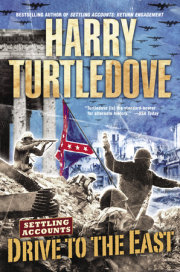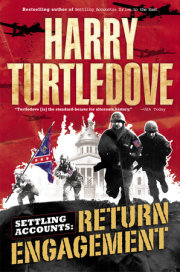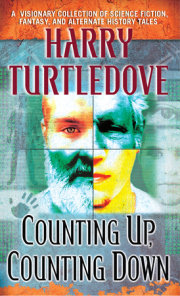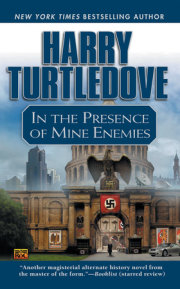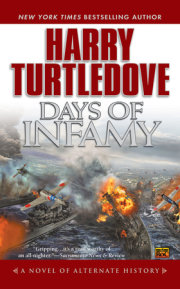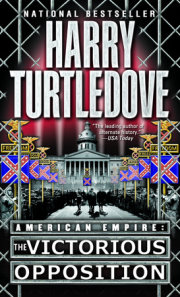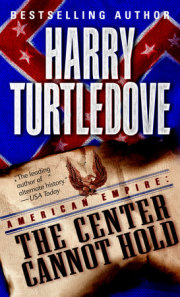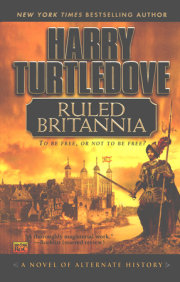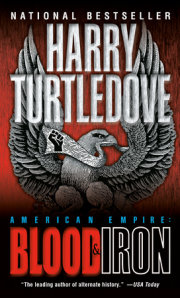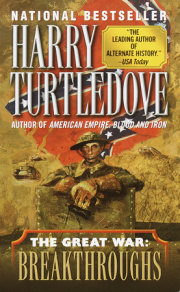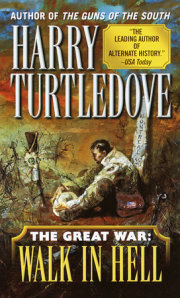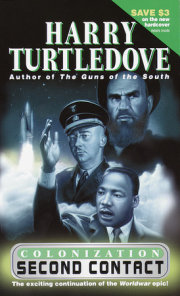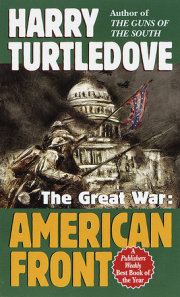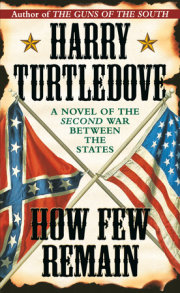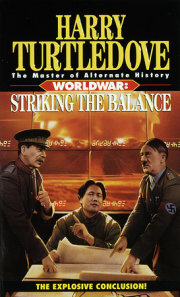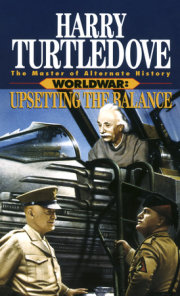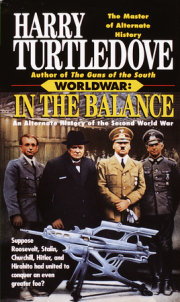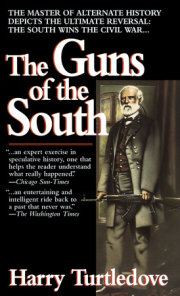I
THE GOLD FLAN WAS FLAT AND ROUND, ABOUT AS WIDE AS Krispos’ thumb—a blank surface, about to become a coin. Krispos passed it to the mintmaster, who in turn carefully set it on the lower die of the press. “All ready, your Majesty,” he said. “Pull this lever here, hard as you can.”
Your Majesty. Krispos hid a smile. He’d been Avtokrator of the Videssians for only eight days, and still was far from used to hearing his new title in everyone’s mouth.
He pulled the lever. The upper die came down hard on the flan, whose soft gold was squeezed and reshaped between it and the one beneath.
The mintmaster said, “Now if you please, your Majesty, just ease back there so the die lifts again.” He waited until Krispos obeyed, then took out the newly struck goldpiece and examined it. “Excellent! Had you no other duties, your Majesty, you would be welcome to work for me.” After laughing at his own joke, he handed Krispos the coin. “Here, your Majesty, the very first goldpiece of your reign.”
Krispos held the coin in the palm of his hand. The obverse was uppermost: an image of Phos, stern in judgment. The good god had graced Videssos’ coinage for centuries. Krispos turned the goldpiece over. His own face looked back at him, neatly bearded, a bit longer than most, nose high and proud. Yes, his image, wearing the domed imperial crown. A legend ran around his portrait, in letters tiny but perfect: KRISPOS AVTOKRATOR.
He shook his head. Seeing the goldpiece brought home once more that he was Emperor. He said, “Thank your die-maker for me, excellent sir. To cut the die so fast, and to have the image look like me—he did splendidly.”
“I’ll tell him what you’ve said, your Majesty. I’m sure he’ll be pleased. We’ve had to work in a hurry here before, when one Avtokrator replaced another rather suddenly, so we, ah—”
The mintmaster found an abrupt, urgent reason to stare at the coin press. He knew he’d said too much, Krispos thought. Krispos’ own ancestry was not remotely imperial; he’d grown to manhood on a peasant holding near Videssos’ northern frontier—and spent several years north of that frontier, as a serf toiling for the nomads of Kubrat.
But after a cholera outbreak killed most of his family, he’d abandoned his village for Videssos the city, the great imperial capital. Here he’d risen by strength and guile to the post of vestiarios—chamberlain—to the Emperor Anthimos III. Anthimos had cared for pleasure more than for ruling; when Krispos sought to remind him of his duties, Anthimos tried to slay him by sorcery. He’d slain himself instead, with a bungled spell … And so, Krispos thought, my face goes on goldpieces now.
“We’re cutting more dies every day, both for this mint and those out in the provinces,” the mintmaster said, changing the subject. “Soon everyone will have the chance to know you through your coins, your Majesty.”
Krispos nodded. “Good. That’s as it should be.” He’d been a youth, he remembered, when he first saw Anthimos’ face on a goldpiece.
“I’m glad you’re pleased, your Majesty.” The mintmaster bowed. “May your reign be long and happy, sir, and may our artisans design many more coins for you.”
“My thanks.” Krispos had to stop himself from bowing in return, as he would have before the crown came to him. A bow from the Avtokrator would not have delighted the mintmaster; it would have frightened him out of his wits. As Krispos left the mint, he had to hold up a hand to keep all the workers from stopping their jobs to prostrate themselves before him. He was just learning how stifling imperial ceremony could be for the Emperor.
A squad of Halogai stood outside the mint. The imperial guardsmen swung up their axes in salute as Krispos emerged. Their captain held his horse’s head to help him mount. The big blond northerner was red-faced and sweating on what seemed to Krispos no more than a moderately warm day; few of the fierce mercenaries took Videssos’ summer heat well.
“Where to now, Majesty?” the officer asked.
Krispos glanced down at a sheet of parchment on which he’d scrawled a list of the things he had to do this morning. He’d had to do so much so fast since becoming Avtokrator that he’d given up trying to keep it all in his head. “To the patriarchal mansion, Thvari,” he said. “I have to consult with Gnatios—again.”
The guardsmen formed up around Krispos’ big bay gelding. He touched the horse’s flanks with his heels, twitched the reins. “Come on, Progress,” he said. The imperial stables held many finer animals; Anthimos had fancied good horseflesh. But Progress had belonged to Krispos before he became Emperor, and that made the beast special.
When the Halogai reached the edge of the palace quarter and came to the plaza of Palamas, they menacingly raised their axes and shouted, “Way! Way for the Avtokrator of the Videssians!” As if by magic, a lane through the crowded square opened for them. That was an imperial perquisite Krispos enjoyed. Without it, he might have spent most of an hour getting to the other side of the plaza—he had, often enough. Half the people in the world, he sometimes thought, used the plaza of Palamas to try to sell things to the other half.
Though the presence of the Emperor—and the cold-eyed Halogai—inhibited hucksters and hagglers, the din was still dreadful. He rubbed an ear in relief as it faded behind him.
The Halogai tramped east down Middle Street, Videssos the city’s chief thoroughfare. The Videssians loved spectacle. They stopped and stared and pointed and made rude remarks, as if Krispos could not see or hear them. Of course, he realized wryly, he was so new an Avtokrator as to be interesting for novelty’s sake, if nothing else.
He and his guards turned north toward the High Temple, the grandest shrine to Phos in all the Empire. The patriarch’s home stood close by. When it came into view, Krispos braced himself for another encounter with Gnatios.
The meeting began smoothly. The ecumenical patriarch’s aide, a lesser priest named Badourios, met Krispos at the mansion door and escorted him to Gnatios’ study. The patriarch sprang from his chair, then went to his knees and then to his belly in full proskynesis—so full, indeed, that Krispos wondered, as he often did with Gnatios, if he was being subtly mocked.
Though his shaven pate and bushy beard marked him as a cleric, they did not rob the patriarch of his individuality, as often happened with priests. Krispos always thought of him as foxlike, for he was clever, elegant, and devious, all at the same time. Had he been an ally, he would have been a mighty one. He was not an ally; Anthimos had been a cousin of his.
Krispos waited for Gnatios to rise from his prostration, then settled into a chair across the desk from the patriarch. He motioned Gnatios to sit and plunged in without preamble. “I hope, most holy sir, you’ve seen fit to reverse yourself on the matter we discussed yesterday.”
“Your Majesty, I am still engaged in a search of Phos’ holy scriptures and of canon law.” Gnatios waved to the scrolls and codices piled high in front of him. “But I regret to say that as yet I have failed to find justification for performing the ceremony of marriage to join together you and the Empress Dara. Not only is her widowhood from his late Majesty the Avtokrator Anthimos extremely recent, but there is also the matter of your involvement in Anthimos, death.”
Krispos drew in a long, angry breath. “Now see here, most holy sir, I did not slay Anthimos. I have sworn that again and again by the lord of the great and good mind, and sworn it truthfully.” To emphasize his words, his hand moved in a quick circle over his heart, the symbol of Phos’ sun. “May Skotos drag me down to the eternal ice if I lie.”
“I do not doubt you, your Majesty,” Gnatios said smoothly, also making the sun-sign. “Yet the fact remains, had you not been present when Anthimos died, he would still be among men today.”
“Aye, so he would—and I would be dead. If he’d finished his spell at leisure, it would have closed on me instead of him. Where in Phos’ holy scriptures does it say a man may not save his own life?”
“Nowhere,” the patriarch answered at once. “I never claimed that. Yet a man may not hope to escape the ice if he takes to wife the widow of one he has slain, and by your own statements you were in some measure a cause of Anthimos’ death. Thus my continued evaluation of your degree of responsibility for it, as measured against the strictures of canon law. When I have made my determination, I assure you I shall inform you immediately.”
“Most holy sir, by your own statements there can be honest doubt about this—men can decide either way. If you find against me, I am sure I can discover another cleric to wear the patriarch’s blue boots and decide for me. Do you understand?”
“Oh, indeed, painfully well,” Gnatios said, putting a wry arch to one eyebrow.
“I’m sorry to be so blunt,” Krispos said, “But it strikes me your delays have more to do with hindering me than with Phos’ sacred words. I will not sit still for that. I told you the night you crowned me that I was going to be Emperor of all Videssos, including the temples. If you stand in my way, I will replace you.”
“Your Majesty, I assure you this delay is unintentional,” Gnatios said. He gestured once more to the stacks of volumes on his desk. “For all you say, your case is difficult and abstruse. By the good god, I promise to have a decision within two weeks’ time. After you hear it, you may do with me as you will. Such is the privilege of Avtokrators.” The patriarch bowed his head in resignation.
“Two weeks?” Krispos stroked his beard as he considered. “Very well, most holy sir. I trust you to use them wisely.”
Copyright © 2011 by Harry Turtledove. All rights reserved. No part of this excerpt may be reproduced or reprinted without permission in writing from the publisher.

